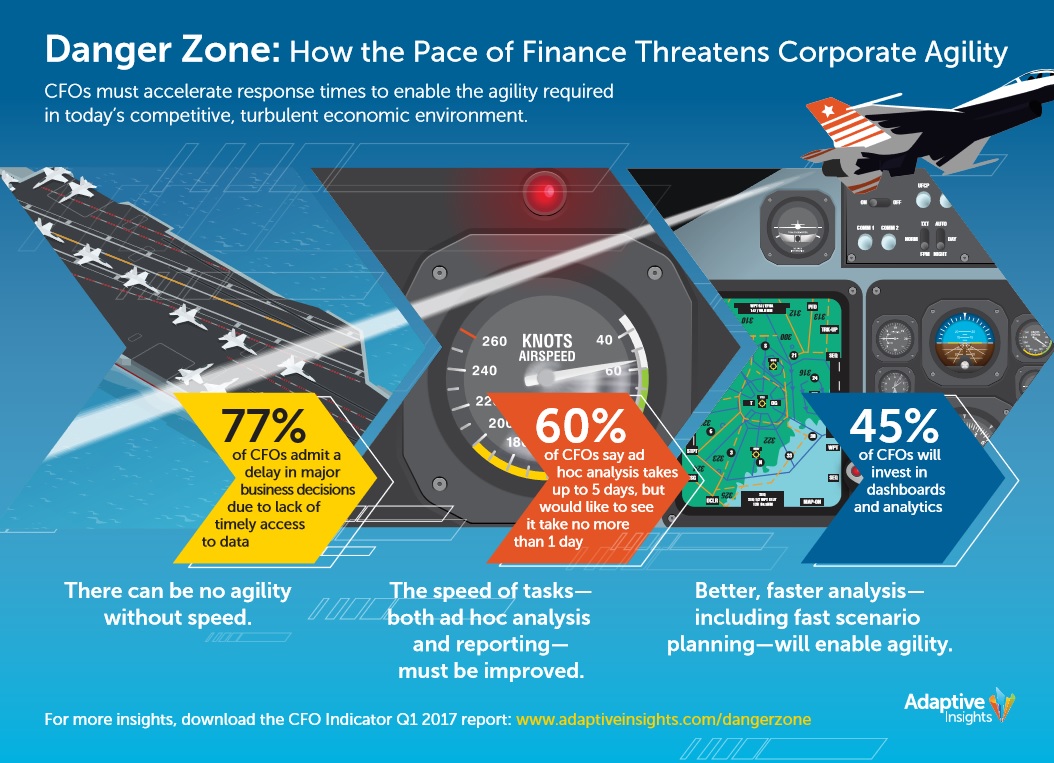As a business it is extremely easy to get bogged down by long, drawn out processes that can hold the company back. This is not a symptom felt by just larger companies either; the business graveyard is littered with sufferers of the dreaded ‘death by committee’ and many businesses are on the brink of collapse because they lack agility.
One of the biggest culpable areas that suffers from this affliction is finance. Often do you hear of a reluctance to move forward at pace from the finance department until they have understood and evaluated all risks and costs to the business, but a lethargy in financially advancing the company is a surefire way to slow up the rest of the company.
Studies show 77 per cent of CFOs admit that major business decisions have been delayed due to stakeholders not having timely access to data and report significant delays with respect to tasks like reporting and ad hoc analysis.
The report warns CFOs that the current pace of finance could threaten corporate agility but hope remains to companies who are willing to take on new practices to adapt to the environment.
The need for speed…in reporting and ad hoc analysis
It is unfair to suggest that the finance department is inherently slow in its decision making but there are definitely areas in which a business can improve to streamline delays and cut them out.
Key decisions around such things as capital expenditures, resource allocations, and investments have been delayed because stakeholders don’t have timely access to data. With shrinking product and innovation cycles—not to mention ever-increasing global competition—these delays can mean the difference between the success or failure of the business.
Half of CFOs (47 per cent) report that it is taking 11+ days to get reports into the hands of stakeholders, yet they would like it to take no more than five days. Clearly there is disparity and timely communication is the solution to expediting this.
Ad hoc analysis is also taking longer than desired taking up to four days longer than CFO’s would necessarily want it to. Buzzwords such as corporate agility may be a cause for exhausted eye-rolls but companies are increasingly required to possess great financial agility in order to improve.
Where does technology come into this?
Many businesses are fearful of technology in the work place and finance is a notorious department that comes off worse from dragging its feet in the sand. You may think that investing in fintech is unnecessary but many other CFOs are looking into making a purchase, with dashboards and analytics topping the list.
Just under half of businesses are looking to get clued up on this solution by 2020; businesses that neglect this advancement are likely to be left behind.
Conclusion
Financial awareness is obviously a priority for many companies that are looking to grow and expand but many struggle to do so. To compound the TopGun metaphor further: your company may be making checks that you simply can’t cash; the only true solution is investing in the future of your businesses, particularly in financial agility, to a clear path and steer clear of the turbulence.







